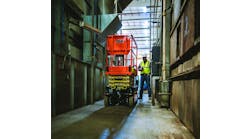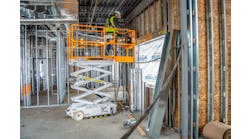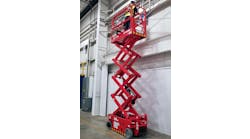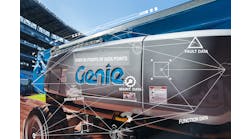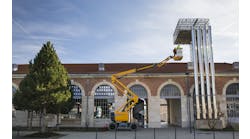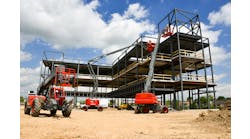In preparation for RER’s June issue, our staff interviewed a number of manufacturers of lawn-and-garden equipment, and will present a number of these interviews in RER Reports. In this interview, RER’s Michael Roth interviews Mike Hale, sales manager of Little Beaver, on the company’s product lines, future trends in the lawn-and-garden industry and how rental companies can market the equipment more effectively.
RER: What are the main areas of technological advancement in your product line, in the industry in general?
Hale: Just this year, we launched a new product, the NTV-11H UN-Towable unit. It’s a hydraulic drill and similar to models in our current lineup, but offers a new option to rental centers and customers in terms of portability design. Basically, there are two options for transport. One, the unit’s power pack is detachable, allowing the unit to easily separate into two pieces. This allows it to be transported in the back of a pickup truck or SUV. In the case that vehicle space is limited, yet towing isn’t ideal, the unit is designed with an optional slide-in receiver hitch. Simply secure the unit in the hitch, crank up the machine until it stops, and insert the pin to lock it in place. The UN-Towable then is transported behind the vehicle, yet off the ground so it’s not actually being towed. Our customers were really looking for an alternative to a towable machine, and we delivered.
Overall, we’ve found that what we’ve been doing in recent years, in terms of engineering, design and technology has worked really well. We feel we have a strong, well-designed product, and our customers agree, so we’ve been sticking to it.
As for the rest of the industry, we’ve seen that, similar to us, most companies are keeping a lot of the same design and technology. Whether that’s because they’ve put together a solid product and they want to stick with it, or the economic conditions haven’t allowed for a lot of new, updated technology; that I can’t say for sure.
What are some of the trends you see now and in the foreseeable future in your type of equipment?
Probably within the last 10 years, I’ve seen a major trend towards compact utility loaders. I think the trend towards these machines is due to a couple different factors, first being that people want versatile machines. Also, it seems these days everyone wants something lighter and a bit easier to operate. Of course, the bottom line is people are looking for machines that require minimal operating effort on their behalf, and these smaller machines have been designed for simple operation.
Is fuel efficiency a big concern in today’s market and if so what are you doing to address that concern?
We recognize that, while it may not be a major concern for our products, it is something to address. After all, if you offer a product with greater fuel efficiency, it will always be a benefit. So we use only quality engines from reputable manufacturers; the companies that produce higher-quality engines are certainly keeping fuel efficiency as a top priority, so they’re incorporating the engineering, design and specific features necessary to achieve the best level.
What EPA, CARB regulations or other environmental concerns are affecting your R&D, the manufacturing and marketing of your equipment?
Yes they certainly do, though they haven’t had too major an impact. We’ve had to modify things such as throttle linkages to meet the new regulations. But it has just been little changes here and there, and not major ones that would drastically affect the design of our equipment.
What are some of the trends you see in the rental industry in terms of lawn and garden equipment and how do those trends affect your business?
Lawn and garden seems to stay fairly strong through rental and sales, though the trend has been more homeowner than commercial. Many are taking care of their lawns and don’t want to pay someone to do it. They want to try to save money, to make their homes more appealing. Whether they’re looking to sell or not, people take a lot of pride in their home and lawn, so they are making the effort to purchase/rent the equipment that will help them keep up.
Any particular advice to rental companies in terms of how to be successful renting your kinds of equipment?
It’s so important for the rental center associates to know the product – how it works, tips for better operation, any accessories that go along with it, all of that. Having an in-depth knowledge of the equipment and being able to communicate the info to customers. At the very least, the associates should make the effort to ask customers if they’re familiar with the equipment and if they’ve rented before. Hopefully that would spark the customer to ask some questions too. We have to assume the customer is not an expert and need to make the effort to offer up the advice, info and tips because not everyone will have specific questions or be brave enough to ask them.
